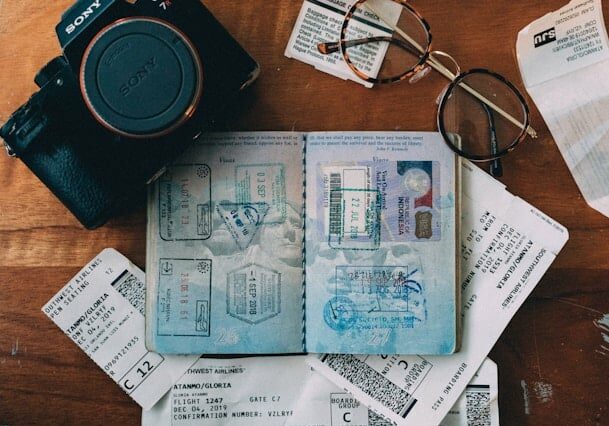
As of February 2024, there are over 100 countries that allow dual citizenship. However, rules and conditions vary by country, and some countries may require you to renounce your previous citizenship. For example, Luxembourg allows multiple citizenships, and citizens who acquire foreign citizenship voluntarily do not lose their Luxembourgian citizenship. In contrast, Japan and Singapore restrict or forbid dual citizenship.
In this guide, we will provide a list of countries that allow dual citizenship and insight into why they do so, the advantages of obtaining another passport, and more.
Countries that Allow Dual Citizenship
Many countries comprehensively recognize dual citizenship, while others permit it only in particular circumstances or for specific individuals. Here is a list of the countries that allow dual citizenship.
Please note that the list is not exhaustive.
Country | Allow Dual Citizenship | Conditions or Exceptions |
Afghanistan | No | A former citizen of Afghanistan who was displaced due to political instability or war and acquired new citizenship may hold “unofficial” Afghan citizenship. |
Albania | Yes | |
Algeria | Yes | |
American Samoa | Yes | |
Andorra | No | Citizens of Spain are permitted dual citizenship |
Angola | Yes | |
Antigua and Barbuda | Yes |
|
Argentina | Yes | Citizens of reciprocal countries can obtain dual citizenship in Argentina |
Armenia | Yes | |
Australia | Yes |
|
Austria | No | Individuals who gain dual nationality at birth can keep both citizenships. Dual citizenship is permitted for individuals eligible for Austrian citizenship by investment. |
Azerbaijan | No | |
Bahamas | No |
|
Bahrain | No |
|
Bangladesh | No | Bangladeshi nationals and their children with foreign citizenship must apply for a Dual Nationality Certificate. |
Barbados | Yes |
|
Belarus | No |
|
Belgium | Yes |
|
Belize | Yes | |
Benin | Yes | |
Bhutan | No | |
Bolivia | Yes | |
Bosnia and Herzegovina | Yes | Permits dual citizenship if there is a bilateral agreement between the two states. |
Botswana | No | Dual citizenship allowed until 21 years age. |
Brazil | Yes | |
British Virgin Islands | Yes |
|
Brunei Darussalam | No | Dual citizenship permitted until 18 years old. |
Bulgaria | Yes |
|
Burkina Faso | Yes |
|
Burundi | Yes |
|
Cambodia | Yes | |
Cameroon | No | Dual citizenship permitted until 21 years old. |
Canada | Yes |
|
Cape Verde | Yes |
|
Central African Republic | Yes |
|
Chad | N/A |
|
Chile | Yes |
|
China | No |
|
Colombia | Yes |
|
Comoros | Yes |
|
Costa Rica | Yes |
|
Croatia | Yes |
|
Cuba | No |
|
Cyprus | Yes |
|
Czech Republic | Yes |
|
Democratic Republic of the Congo (Kinshasa) | No | Dual citizenship permitted until 21 years old. |
Denmark | Yes |
|
Djibouti | Yes |
|
Dominican Republic | Yes |
|
Dominica | Yes |
|
East Timor | Yes |
|
Ecuador | Yes |
|
Egypt | Yes |
|
El Salvador | Yes |
|
Equatorial Guinea | Yes |
|
Eritrea | No |
|
Estonia | No |
|
Eswatini | No |
|
Ethiopia | No |
|
Fiji | Yes |
|
Finland | Yes |
|
France | Yes |
|
Gabon | N/A |
|
Georgia | No | Allowed only when a foreign president grants citizenship based on exceptional merit. |
Germany | Yes | Must apply for a citizenship retention permit to keep German citizenship before applying for second citizenship. |
Ghana | Yes |
|
Greece | Yes | |
Grenada | Yes | |
Guatemala | Yes | |
Guinea-Bissau | Yes | Permits dual citizenship if emigration was motivated by economic factors. |
Guinea | N/A | |
Guyana | No | |
Haiti | Yes |
|
Honduras | Yes | Allows dual citizenship if a treaty exists with that country. |
Hong Kong | Yes |
|
Hungary | Yes |
|
Iceland | Yes |
|
India | No | Dual citizenship allowed for minor Indian citizens by birthright. Adult Indian citizens can acquire a second citizenship; however, they'll be considered an "overseas citizen" restricting their Indian citizenship rights. |
Indonesia | No |
|
Iran | No |
|
Iraq | Yes |
|
Ireland | Yes |
|
Israel | Yes |
|
Italy | Yes |
|
Ivory Coast | Yes |
|
Jamaica | Yes |
|
Japan | No | Dual citizenship permitted until 21 years old. |
Jordan | Yes |
|
Kazakhstan | No |
|
Kenya | Yes |
|
Kiribati | No |
|
Kosovo | Yes |
|
Kuwait | No |
|
Kyrgyzstan | Yes |
|
Laos | No |
|
Latvia | Yes |
|
Lebanon | Yes |
|
Lesotho | No | Dual citizenship permitted until 21 years old. |
Liberia | No | Dual citizenship permitted until the age of maturity. |
Libya | No |
|
Liechtenstein | No |
|
Lithuania | Yes | Permits dual citizenship only in certain circumstances. |
Luxembourg | Yes |
|
Macau | Yes |
|
Madagascar | No |
|
Malawi | No | Dual citizenship permitted until 22 years old. |
Malaysia | No |
|
Maldives | No | |
Mali | Yes |
|
Malta | Yes |
|
Marshal Islands | Yes | |
Mauritania | No |
|
Mauritius | Yes |
|
Mexico | Yes |
|
Micronesia | No | Dual citizenship permitted until 18 years old. |
Moldova | Yes | |
Monaco | No |
|
Mongolia | No |
|
Montenegro | No | Allows dual citizenship only if a bilateral treaty exists with the other country. |
Morocco | Yes |
|
Mozambique | Yes | |
Myanmar, Burma | No | |
Namibia | Yes |
|
Nauru | Yes | |
Nepal | No | |
Netherlands | No | Permits dual citizenship if you were born in a foreign country and obtained citizenship at birth, or lived there as a minor, or if you acquired your spouse’s nationality automatically. |
New Zealand | Yes |
|
Nicaragua | Yes |
|
Nigeria | Yes | Allows dual citizenship for Nigerian citizens by birthright. |
Niger | Yes |
|
North Korea | No | |
North Macedonia | Yes |
|
North Macedonia | Yes |
|
Norway | No | Allows dual citizenship if original nationality cannot be relinquished. |
Oman | No |
|
Pakistan | Yes | Allows dual citizenship only if a bilateral treaty exists with the other country. |
Palau | No | Dual citizenship permitted until 21 years old. |
Palestine | N/A |
|
Panama | Yes |
|
Papua New Guinea | Yes | |
Paraguay | Yes | Dual citizenship allowed for citizens by birth or ancestry where an international treaty exists. |
Peru | Yes |
|
Philippines | No |
|
Poland | Yes |
|
Portugal | Yes |
|
Qatar | No |
|
Republic of Congo (Brazzaville) | Yes |
|
Romania | Yes |
|
Russia | Yes |
|
Rwanda | No |
|
Samoa | Yes |
|
San Marino | No |
|
Sao Tome and Principe | No |
|
Saudi Arabia | No |
|
Scotland | Yes | |
Senegal | N/A | |
Serbia | Yes |
|
Seychelles | Yes |
|
Sierra Leone | Yes |
|
Singapore | No |
|
Slovakia | No |
|
Slovenia | Yes | Allows dual citizenship for citizens by birth or descent. |
Solomon Islands | No | Dual citizenship permitted until 18 years old. |
Somalia | Yes |
|
South Africa | Yes | Dual citizenship is allowed only if the South African Minister of Home Affairs grants permission. |
South Korea | Yes |
|
South Sudan | Yes |
|
Spain | Yes | Dual citizenship allowed for citizens of Latin American countries, Andorra, the Philippines, Equatorial Guinea, or Portugal, or for Spanish citizens by birthright their second citizenship within three years of acquiring it. |
Sri Lanka | Yes | An Application for Retention must be submitted to be eligible for dual citizenship. |
St. Kitts and Nevis | Yes |
|
St. Lucia | Yes |
|
St. Vincent and the Grenadines | Yes |
|
Sudan | Yes |
|
Suriname | No |
|
Sweden | Yes |
|
Switzerland | Yes |
|
Syria | Yes | |
Taiwan | Yes |
|
Tajikistan | Yes | Dual nationals will only be considered citizens of Tajikistan. |
Tanzania | No | Allows dual citizenship until 18 years old. |
Thailand | Yes |
|
The Gambia | Yes |
|
Tibet | Yes |
|
Togo | No |
|
Tonga | Yes |
|
Trinidad and Tobago | Yes | Allows dual citizenship only for citizens of Trinidad and Tobago by birthright. |
Tunisia | Yes |
|
Turkey | Yes | |
Turkmenistan | No |
|
Tuvalu | N/A | |
Uganda | Yes | |
Ukraine | No |
|
United Arab Emirates | No |
|
United Kingdom | Yes |
|
United States | Yes |
|
Uruguay | Yes |
|
Uzbekistan | No |
|
Vanuatu | Yes |
|
Vatican City | Yes | |
Venezuela | Yes |
|
Vietnam | Yes | |
Yemen | Yes | Dual citizenship requires prior permission. |
Zambia | Yes | |
Zimbabwe | Yes | Dual nationality allowed only for citizens by birthright. |
Dual citizenship in EU countries
Many European nations accept dual citizenship, and countries like the United Kingdom and France have some of the most diverse ranges of dual citizens worldwide. The few European countries that don’t permit dual citizenship include Estonia and Austria. However, these are also among the EU countries that allow dual citizenship under specific circumstances.
Dual citizenship in Africa
African nations are relatively divided in their acceptance of multiple nationality. While many don’t recognize multiple citizenship, African nations that allow dual citizenship include Angola, Benin, Burundi, Morocco, South Africa and Sierra Leone.
Dual citizenship in South America
Besides a few countries, South American countries almost universally acknowledge dual citizenship. Of other countries in the Americas, several Caribbean countries allow dual citizenship by investment, which include Antigua and Barbuda, Dominica, St. Lucia, and St. Kitts and Nevis dual citizenship.
Why do countries allow dual citizenship?
“The Transformation of Citizenship” report from Global Intelligence Unit has discovered instances of dual or multiple citizenship allow countries of origin countries to benefit significantly through strengthened diaspora networks as these tend to foster economic growth and cultural exchange.
Migrants often maintain strong ties to their home countries, sending remittances that play a crucial role in supporting local economies. These remittances surpassed $800 billion globally in 2023 alone.
Let’s take a look at some of the main reasons why countries allow citizenship in more than one country:
Economy

They can also maintain economic ties with their countries of dual nationality through real estate investment, which obliges the dual citizen to pay taxes such as property tax or tax on income generated through rental properties.
Although the United States allows US citizens to have multiple citizenship statuses, an American citizen is liable to pay taxes on worldwide income in specific circumstances.
This economic tie wouldn’t be possible if they lost their US citizenship automatically after they gained citizenship in another country.
Family
Dual nationality facilitates family reunification, enabling dual citizens with family members with only one citizenship to obtain alternative citizenship from different countries. This allows families to stay connected, live together, and access social and political rights.
Culture
A country that permits dual citizenship establishes its recognition and celebration of its diverse cultural heritage. Through multiple nationalities, it promotes inclusivity and creates a sense of belonging for individuals with ties to other countries.
Workforce
A challenge many countries have grappled with during the past few decades of increasing globalization is the phenomenon of brain drain. Brain drain refers to the movement of skilled and talented people, like doctors, engineers, or scientists, from their country of citizenship to a foreign state. It occurs when these skilled individuals choose to leave their home country and work or live in another place, often fuelled by a lack of opportunities.
Allowing dual nationality can prevent brain drain by encouraging skilled citizens living overseas to maintain their home country’s citizenship. This helps retain talent and expertise, contributing to national development as many skilled individuals return to their home countries.
Birthright
Many countries grant citizenship either through the right of soil (jus soli) or the right of blood (jus sanguinis). If a child is born in a country that practices jus soli, they may obtain citizenship automatically, even if their parents are citizens of another country. On the other hand, jus sanguinis grants a child born in one country the right to obtain citizenship from their parents if their parents’ country adheres to this rule.
Historical
Some countries allow dual citizenship to recognize historical ties or unique relationships with particular communities or diaspora groups living abroad. This is particularly common with former territories. Although Argentina doesn’t universally allow dual citizenship, individuals with Italian or Spanish nationality can obtain and secure dual citizenship in Argentina.
Humanitarian
Countries that accept dual citizenship may provide a safe haven for stateless individuals or refugees, offering them a legal identity and access to rights and protections. While not considered dual nationality traditionally, the 1961 Convention on the Reduction of Statelessness mandates that countries uphold their human rights obligations by offering legal status to stateless individuals.
Reciprocity
As a reciprocal measure, some countries may choose to allow dual citizenship, aiming to reciprocate fair treatment for their citizens living abroad.
Dual Citizenship Advantages
Dual citizens can access benefits offered by the two countries in which they hold citizenship. Benefits include voting rights, access to social privileges, and additional work opportunities.
Travel freedom
Advanced healthcare
Business opportunities
Family benefits
Travel freedom: Only citizens of a country can obtain a passport, and dual nationality means the right to acquire two passports from separate countries, facilitating additional visa-free travel. Holding two also eliminates restrictions many countries impose on temporary and permanent residents, such as a maximum stay period outside the country or an obligation to obtain a re-entry permit.
Advanced healthcare: Holding dual nationality allows individuals to access the best health offered by their respective countries of citizenship. Furthermore, each country may have specific areas in which they excel regarding healthcare.
Business opportunities: Dual-citizen entrepreneurs can easily open new sales channels and access new business and investment opportunities. Dual citizens can develop professionally and expand their investment portfolios without needing a work or self-employment visa permitting them to conduct business in another country.
Future benefits for family: Holding dual nationality means you can sponsor your family members to obtain citizenship by descent. In many countries, children born to dual-citizen parents automatically obtain citizenship from their parents. Moreover, the inheritance of ancestral citizenship can span across multiple generations. For example, individuals can be eligible to obtain Polish citizenship through their great-grandparents.
Dual Citizenship Disadvantages

The complex process of obtaining citizenship: Acquiring a second citizenship may involve significant expenses and considerable time investment in collecting and processing the required documentation, particularly for ancestral citizenship.
Double taxation: Unless the two countries of citizenship have a double tax agreement, multiple nationality may come with an increased tax burden. For example, the United States obliges US citizens with double nationality to pay taxes, even if they have permanent resident status in another country.
Dual obligations: Citizenship has varying responsibilities from one country to the other, with a significant one being mandatory national service. Individuals with Brazilian, Singaporean, or Chinese citizenship must adhere to their country’s enlistment laws once they reach a specified maturity age.
Inheritance complications: The complexity of inheritance laws in different countries can significantly affect dual citizens. When a dual citizen possesses assets or property in two countries, it can lead to estate planning and succession complications. Each country may have its own rules and regulations regarding inheritance, including tax implications, distribution of assets, and procedures for probate.
Six Key Considerations for Citizenship Planning
When planning for a second passport, it’s essential to fully understand the benefits and potential sacrifices involved, particularly when renouncing one citizenship for another. Balancing the advantages of global mobility with any legal, financial, or personal consequences is critical in making the right decision.
These are the six key considerations for citizenship planning:
1. Global mobility: Evaluate how a second passport will improve your visa-free travel options and access to regions like the EU, Schengen Area, or the U.S.
2. Tax implications: Research the tax policies of your current and potential new citizenship, especially how income, inheritance, and wealth taxes may apply. Some countries offer tax advantages, while others may have stricter obligations for citizens.
3. Legal residency requirements: Consider the residency or physical presence requirements for obtaining and maintaining citizenship. Some programs require a minimal stay, while others mandate longer-term commitments.
4. Civic and political rights: Ensure you understand your rights and obligations as a citizen, such as the right to vote, access to healthcare, and military obligations.
5. Trade-offs & renunciation: Consider the trade-offs of holding dual citizenship, such as conflicting obligations (e.g., military service or taxes). If you’re considering renouncing your current citizenship in favor of another, weigh the long-term impacts, especially if it affects your right to return, property ownership, or family connections in your home country.
6. Investment immigration & alternatives: When planning for dual citizenship, consider investment immigration options like Citizenship by Investment (CBI) or Golden Visa programs. A second passport enhances mobility, but you can retain your original citizenship while securing permanent residency through a Golden Visa. This offers many benefits—access to healthcare, education, and visa-free travel—without renouncing your current passport.
Countries that Do Not Allow Dual Citizenship
These are some of the countries that do not allow dual citizenship. Please note that this is not a comprehensive list.
Country | Notes |
China | Does not recognize dual citizenship. |
India | Does not permit dual citizenship, but allows Overseas Citizenship of India (OCI). |
Indonesia | Prohibits dual citizenship for adults; children must choose by age 18. |
Japan | Requires individuals to choose one nationality by age 22. |
Singapore | Does not allow dual citizenship; individuals must choose at age 21. |
Saudi Arabia | Does not recognize dual citizenship; strict policies for expatriates. |
Malaysia | Prohibits dual citizenship; individuals must renounce other citizenships. |
United Arab Emirates | Generally prohibits dual citizenship; exceptions exist for certain groups. |
Austria | Allows dual citizenship only in exceptional cases. |
Ukraine | Does not permit dual citizenship; citizenship must be renounced. |
Myanmar | Does not allow dual citizenship for any nationals. |
Kuwait | Prohibits dual citizenship. |
Nepal | Dual citizenship is not allowed. |
North Korea | Does not recognize dual citizenship. |
Bahrain | Does not allow dual citizenship; requires renouncing foreign citizenships. |
Thailand | Does not officially allow dual citizenship, though enforcement is inconsistent. |
Lithuania | Allows dual citizenship only under strict conditions. |
Estonia | Generally does not permit dual citizenship, especially for naturalized citizens. |
Poland | Does not recognize dual citizenship for naturalized citizens. |
How Can Global Citizen Solutions Help You?
Global Citizen Solutions is a boutique migration consultancy firm with years of experience delivering bespoke residence and citizenship by investment solutions for international families. With offices worldwide and an experienced, hands-on team, we have helped hundreds of clients worldwide acquire citizenship, residence visas, or homes while diversifying their portfolios with robust investments.
We guide you from start to finish, taking you beyond your citizenship or residency by investment application.

Frequently Asked Questions about Dual Citizenship
Are there countries that allow dual citizenship?
Yes, more than 100 countries allow dual citizenship, but the rules and conditions vary by country. Some countries may require you to renounce your original citizenship.
Can a US citizen have multiple citizenships?
US citizens can legally hold citizenship for more than one country. US dual citizenship, meaning an individual can be both a US citizen and a citizen of another country while holding two or more passports.
Does dual citizenship affect US citizenship?
Dual citizenship does not impact US citizenship status, as the United States permits dual citizenship. It is also possible to have permanent residency without applying for a second citizenship.
How do I acquire dual citizenship?
Whether or not you can acquire citizenship in a different country through ancestry depends on the dual citizenship laws of the host country and your ancestral history. Italian citizenship by descent has no generational limits, meaning individuals with Italian ancestry are eligible for dual citizenship, provided their ancestral line remains unbroken.
Which countries disallow dual citizenship?
There are a few countries that do not allow dual citizenship. Here is a list of countries that do not grant dual citizenship:
- Bahrain
- Malaysia
- Qatar
- Singapore
The UK allows dual citizenship?
The UK is one of several dual-citizenship countries with no restrictions on the number of nationalities British citizens can hold next to their British citizenship.
Which Asian countries allow dual citizenship?
Compared to global standards, Asian countries are pretty restrictive in their stance on dual citizenship. However, Asian nations that allow dual citizenship include Thailand, Cambodia, and South Korea. Muslim countries that approve of dual citizenship include Turkey and Lebanon.
Japan doesn't allow dual citizenship?
Japan is not among the countries that permit dual citizenship, as the Japanese government has previously expressed no national interest in allowing dual or multiple citizenships. Japan continues to prioritize a strong sense of national identity and citizen loyalty. The Japanese government aims to promote a cohesive and unified society by enforcing a single citizenship rule.

 Artur Saraiva
Artur Saraiva 
